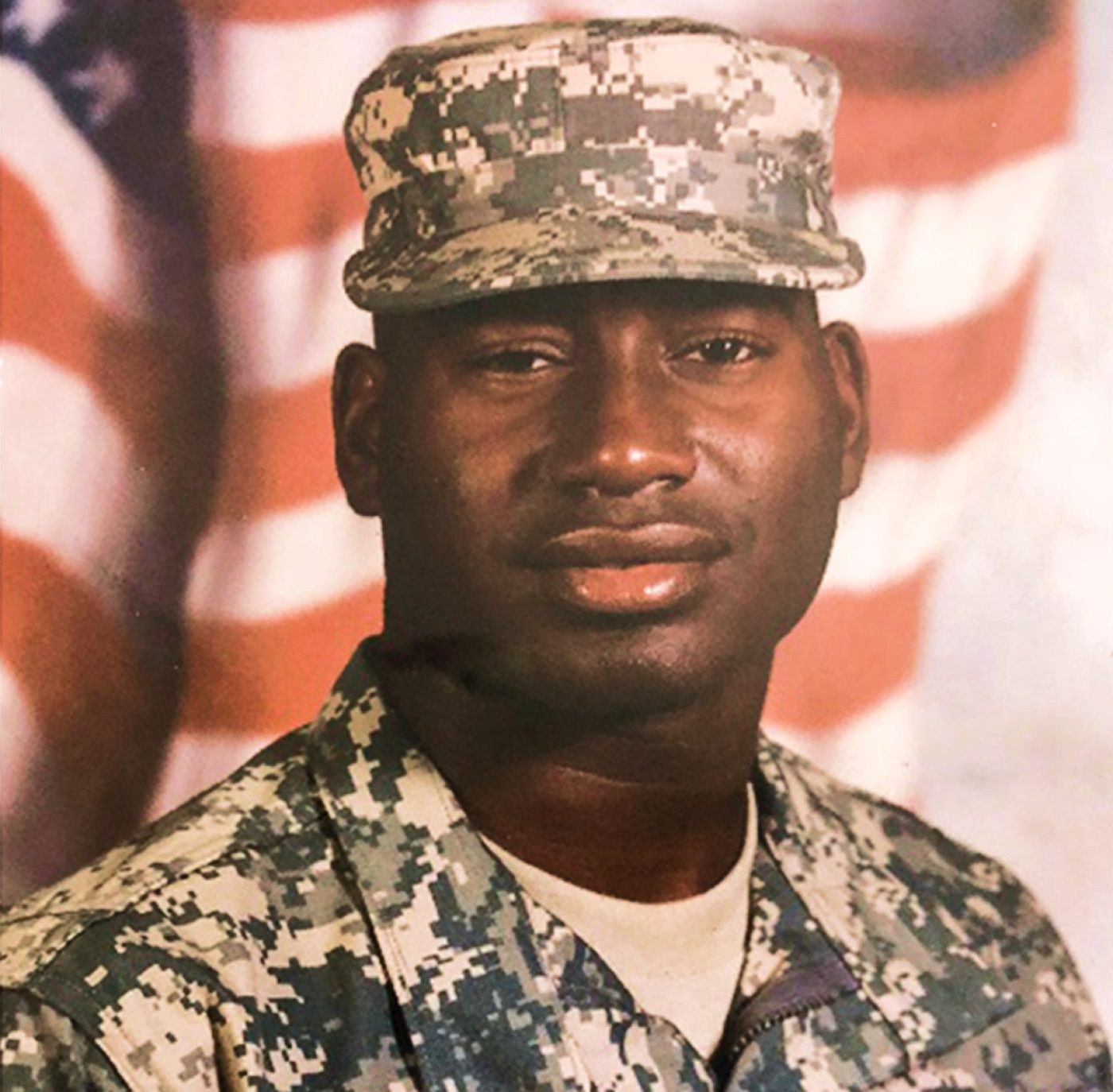In 2016, Iraq War veteran and purple heart recipient Sean Worsley was driving with his wife Eboni to visit his family in North Carolina. The couple stopped at a Jet Pep gas station in Gordo, Alabama, to fill up their empty gas tank. While they waited for the tank to fill, they sang and danced to music in their car. Upon hearing the music from across the street, an officer approached the Worsleys for violating the town’s noise ordinance. The officer said he smelled marijuana and with Sean’s permission proceeded to search their vehicle.
Sean, a disabled veteran suffering from a traumatic brain injury and post-traumatic stress disorder (PTSD) from his deployment in Iraq, used medical marijuana to calm his nightmares and soothe his shoulder and back pain. Sean insisted that the officer take a look at his medical marijuana card, but the officer placed him in handcuffs as he stated that medical marijuana was not legal in Alabama, charging him with a Class C felony for possession of marijuana for “other than personal use.” The arrest landed Sean in one of the country’s most violent prison systems.
After spending six days in jail, Sean was released on bond and went back to his home in Arizona. Less than a year later, they were called back to Alabama to appear in court after a judge revoked all bonds issued by the bondsman who paid their bail. Sean accepted a plea agreement that included 60 months of probation, drug treatment and thousands of dollars in fines, fees, and court costs.
In compliance with the terms of his probation, Sean went to the Veteran’s Affairs office to take an assessment for placement in drug treatment. However, the Veteran’s Affairs office rejected his request, stating he “has legal documentation to support his use and therefore does not meet criteria for a substance use disorder or meet need for substance abuse treatment.” While Sean and his wife were trying to communicate their situation to Sean’s probation officer and their attorney in Alabama,. his wife lost her job and the Worsleys soon found themselves homeless. To make matters worse, his wife needed heart surgery.
In early 2020, Sean was pulled over on his way to Eboni’s sister’s home, where he was going to help with a repair. He had some marijuana with him. The officers who pulled him over noticed he was terrified. They asked him why. According to Eboni, he told them everything: about this PTSD, his traumatic brain injury, that he couldn’t afford to renew his medical marijuana card so it had expired, the outstanding warrant from Alabama. The officers told him not to worry; Alabama would never extradite him over a little marijuana. It would be OK. They were wrong. The state of Alabama requested Sean back to Pickens County. When the Arizona police told him, he ran. He fell. He was taken to jail, and eventually, he was transported to Pickens County at a cost to the state of Alabama of $4,345. The state moved to make Sean pay that money himself, on top of the $3,833.40 he already owed in fines, fees, and court costs.
At this point, in the eyes of the court Sean had failed to receive drug treatment, did not maintain a permanent address and had a new interaction with police, so Sean was seen to have violated the conditions of his probation. So, just as the COVID-19 pandemic was taking hold in the U.S. Sean was sentenced to 60 months in Alabama prison.
A coalition of advocates and online supporters — outraged by the idea of a purple-heart veteran imprisoned for playing his music too loudly and the lawful use of medical marijuana — began a public campaign for Sean’s release. In response, the Alabama Board of Pardons and Paroles has granted Sean parole in October 2020.
